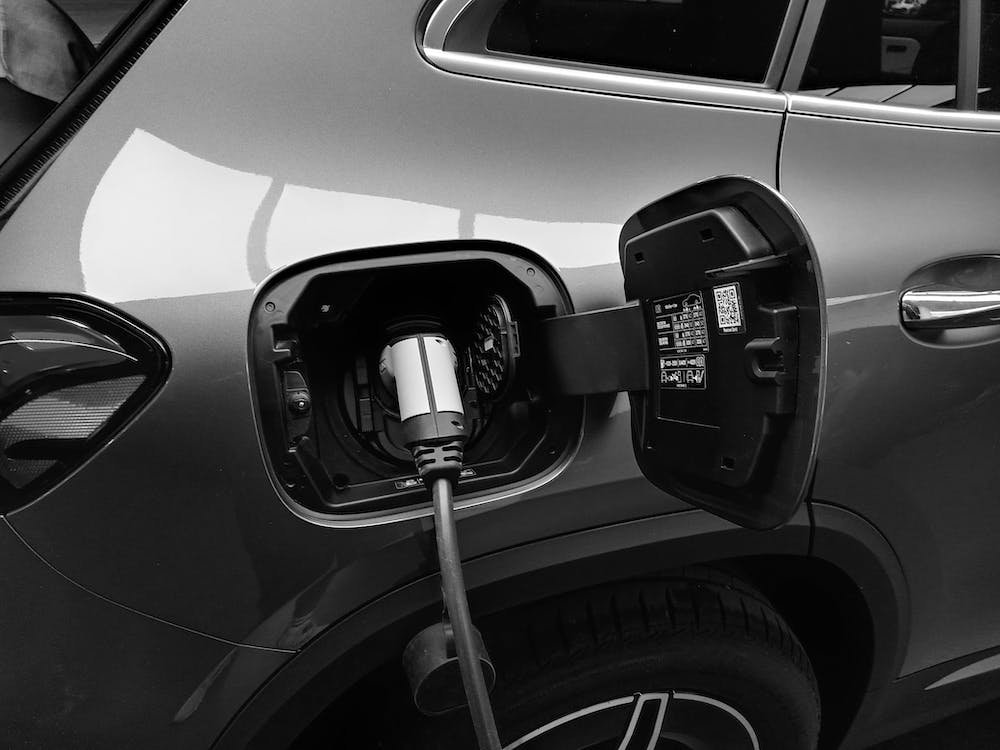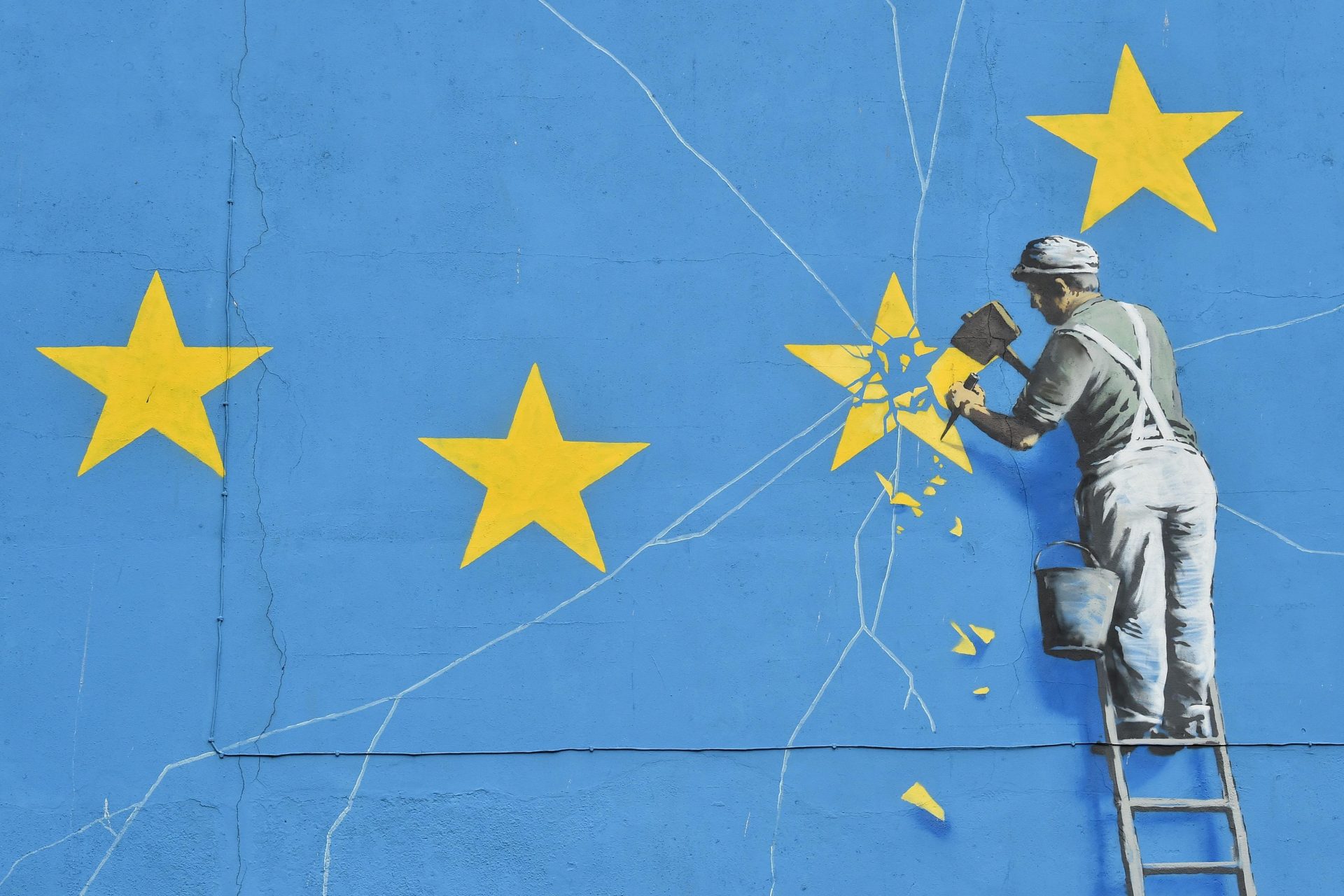EU’s Looming Battery Dependency On China Echoes Of The Russian Energy Dependency; EU Now Aiming To Reduce Dependency on Chinese Batteries And Secure Its Economic Future
The European Union (EU) finds itself at a critical crossroads as it strives to meet ambitious climate targets and transition to a sustainable future; the EU's dependence on China for vital lithium-ion batteries and fuel cells looms as a potential stumbling block. This dependency, reminiscent of its past reliance on Russian energy, poses significant economic and geopolitical risks for the EU.

The European Union is at risk of becoming as reliant on China for lithium-ion batteries and fuel cells by 2030 as it once was on Russian energy prior to the Ukraine conflict; the same is highlighted by a report prepared for EU leaders.
This report is now set to be the basis of discussions on Europe’s economic security during an upcoming meeting of EU leaders in Granada, Spain, on October 5th.

Reducing Dependency on Chinese Batteries
The EU, with its visionary goals of achieving net-zero carbon dioxide emissions by 2050, is gearing up for a transformative shift towards renewable energy sources like solar and wind.
However, these intermittent energy sources necessitate effective energy storage solutions; as a result, the demand for lithium-ion batteries, fuel cells, and electrolysers is expected to skyrocket, increasing between tenfold and thirtyfold in the coming years.
While the EU boasts a substantial global market share in the intermediate stages of electrolyser production, it remains heavily reliant on China for critical components such as fuel cells and lithium-ion batteries, which are indispensable for electric vehicles and renewable energy integration.
Amid concerns over China’s increasing global influence and economic clout, EU leaders will deliberate on proposals from the European Commission aimed at mitigating the risk of excessive dependency on China and the imperative to diversify partnerships, particularly towards Africa and Latin America.
The report stresses that, given the intermittent nature of renewable energy sources such as solar and wind, Europe must invest in energy storage solutions to achieve its target of net-zero carbon dioxide emissions by 2050.
The paper, prepared under the auspices of the Spanish presidency of the EU, anticipates a substantial surge in demand for lithium-ion batteries, fuel cells, and electrolysers.

Same As In The Case Of Russia
While the EU possesses a strong presence in the intermediate and assembly stages of electrolyser production, holding more than 50% of the global market share, it heavily relies on China for fuel cells and lithium-ion batteries, which are vital for electric vehicles.
The report warns that without significant measures, the EU’s energy landscape could develop a dependency on China similar in nature and severity to its past reliance on Russian energy before the Ukraine invasion.
To provide context, in 2021, the year preceding the Russian invasion of Ukraine, the EU sourced over 40% of its total gas consumption, 27% of oil imports, and 46% of coal imports from Russia.
The discontinuation of these energy purchases from Russia caused an energy price shock in the EU, triggering a surge in consumer inflation and necessitating a significant interest rate increase by the European Central Bank, which had adverse effects on economic growth.

Beyond Batteries
While the spotlight shines brightly on the energy sector, the EU’s vulnerabilities extend into the digital technology space, the demand for digital devices, crucial for modern industries and services, is set to surge in the coming decade.
The EU’s relative strength in certain areas, such as data servers, contrasts with significant weaknesses in others and these vulnerabilities not only hamper productivity gains but also jeopardize the modernization of agricultural systems necessary for addressing climate change.
De-risking the EU Economy
The EU’s dependency on China and other nations for essential raw materials used in the production of telecommunications devices, electric vehicles, and semiconductors further complicates efforts to derisk the European economy. Therefore, strategies for reducing this dependency are being actively explored.
In March, during a speech at the Mercator Institute for China Studies, Ursula von der Leyen, President of the European Commission, unveiled the EU’s intention to decrease its economic dependence on China, emphasizing the need for “de-risking” to mitigate the risks of overreliance on Beijing.
Currently, China supplies nearly 98-100% of Europe’s heavy rare earth element requirements, Turkey provides 98% of its boron needs, and South Africa, 71% of its platinum needs.
The EU is pursuing diversification of its critical raw materials supply and has introduced the Critical Raw Materials Act, listing 36 materials deemed “critical,” with 16 classified as “strategic” due to their significance in green and digital transition, as well as defense and space sectors.
The transition to a net-zero society has made Europe increasingly reliant on China due to the growing demand for batteries in electric vehicles, solar panels, and renewable energy components; hence, acknowledging the same, addressing these dependencies and negotiating with China to safeguard European interests are pressing concerns.

To this end, the European Critical Raw Materials Act was introduced in March 2023, with the Council of Europe adopting its position on the proposal in June.
The EU is pursuing a broader strategy involving supply chain diversification in digital, green, and health industries, better utilization of existing trade regulations, protection of critical sectors, and expanded trade with other nations.
Industrial players are also aligning with these ambitions, and many seek to regain control over supply chains, particularly for items such as packaging, which predominantly originates from China and Taiwan.
Changing Strategy
Relocation to Southeast Asia is being explored as a solution; additionally, the European Chips Act aims to increase chip production capacity to 20% of global needs by 2030, a significant step toward mastering this industry.
The World Bank predicts a 500% increase in demand for critical raw materials by 2050 due to the acceleration of the green transition.
France is taking a leading role in efforts to rebuild supply chains, especially for semiconductors and batteries; thus, investment in research and development is crucial for reducing reliance on critical materials in batteries, extending electric vehicle autonomy, and improving battery recycling to recover more metals while lowering costs.
French startup Olenergies is working towards making batteries with fewer critical materials. Their Lithium Iron Phosphate (LFP) batteries, lacking cobalt or manganese, are both more environmentally friendly and durable, with the potential to last four times longer than conventional lithium batteries.
However, they do come at a 20% higher cost than those imported from China. Olenergies aims to open its first gigafactory by 2026 to accelerate technological advancements.

Sweden has also made significant strides, with the discovery of one million metric tonnes of rare earth metal in Kiruna in January 2023, representing Europe’s largest deposit of these critical materials. These metals are expected to become more crucial than fossil fuels in Europe’s transition to greater renewable energy usage.
Despite these positive developments, rebuilding supply chains is expected to result in higher prices and, consequently, increased inflation, and balancing these economic factors while reducing dependency on external sources remains a complex challenge for the European Union.
The Last Bit, The EU’s journey to reduce its dependency on Chinese batteries and secure its economic future is fraught with challenges and opportunities.
It stands at a pivotal moment where addressing these vulnerabilities is not merely an economic imperative but a strategic necessity.
Hence, the EU can pave the way for a more resilient and sustainable future by diversifying supply chains, investing in innovation, and strategically reducing reliance on external sources.
However, balancing these efforts with potential price increases and inflation remains a complex task, but one that is essential for ensuring the EU’s economic stability and long-term success.




